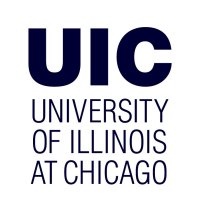
Four physicians from Cuba are working in Chicago to improve maternal health and birth outcomes in Englewood. Through a partnership with the University of Illinois at Chicago, the physicians have been observing clinical care at Mile Square Health Center, UI Health’s network of federally qualified clinics. They have also met with community leaders, including elected officials, nonprofit groups and others, to develop a picture of how health care is delivered in under-resourced communities, and how their expertise may help fill gaps in care. “The Cuban health system does preventive health very, very well, and they do it without a lot of money,” said Dr. Robert Winn, associate vice chancellor of community-based practice at UIC and director of the University of Illinois Cancer Center.
Per capita, Cuba spent roughly $600 on health expenditures in 2010. In the U.S., this figure is above $8,000 for the same year, but life expectancy in the two countries was the same, at 79 years. For the past year, doctors from Cuba and researchers from the cancer center have traveled between the two countries to observe practices and exchange ideas. During the exchange, the team identified a key difference between the two countries: doctors in the U.S. do not know as much about their patients’ home life and environment. In Cuba, doctors have more insight into how the home and neighborhood affects their patients’ health. “In Cuba, we visit every home and we ask health-related questions for every individual in the household,” said Dr. Jose Armando Arronte Villamarin, one of the physicians from Cuba who has been in Chicago since August. The pilot project will test the adapted health situation analysis with up to 100 reproductive age women (ages 18 to 49) and their families in Englewood. Researchers will connect with women through the Mile Square Health Center clinic in Englewood or community organizations. The researchers will use the assessment to get an individual- and community-level picture of overall health, and to note the social and environmental factors that affect health and health behavior. Villamarin, Dr. Berta Maria Bello Rodriguez, Dr. Sonia Maria Gonzalez Vega and Nemesis Perez Martinez, a nurse, are scheduled to be in Chicago through December. A $1 million grant from the Kellogg Foundation funds the project.









